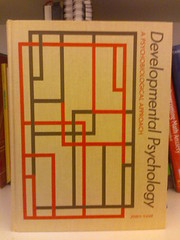Growth is not static or follows open progression. It can be three steps forward and two steps backwards before another forward leap. A child that is allowed to develop at his own speed usually wins the race of life. Recognize the difference in your children. Each child is an individual and has individual talents and abilities.
As I mentioned, children develop at different speeds. As a parent, be aware of your child's language development, emotional and social development, and gross and fine motor skill development. Information about your child's development enhances your capacity to respond appropriately to him.
As an informed parent you'll be better equipped to problem solve, be more confident in your decisions, and be more likely to respond sensitively your child's developmental needs.
Work Closely with Your Child's Teachers
If your child is in a preschool program, work with the teachers in encouraging your child's development. At this stage, you do not have to get your child to learn, only to allow and encourage him in learning. You do not have to dictate what they should learn; only to observe and respond to what it is he is learning. Such responsiveness is the most educational and the most loving.
If you think of learning as a path, you can picture yourself walking besides him rather than pushing or dragging or carrying him along. The wisest thing that you can do is to let your preschooler figure out the details on how to draw the human figure, and solve a range of problems from overcoming Saturday boredom to dealing with a difficult kid in the neighborhood. But even if you are standing on the sidelines, you can frequently offer support in helping your child discover what he wants to accomplish.
Read to Your Children
And, finally despite the current rave about computer games and acquiring academic skills via the desktop or laptop, reading out loud is one of the most valuable gifts you can give to your preschooler. You are providing several things:
1. Pleasure. You are presenting books as a means for enjoyment. An addiction to books and reading is one of the most valuable gifts adults can give to children.
2. Vocabulary Development. Preschoolers enjoy new words. Through stories, they hear new words in a meaningful context and absorb the meanings.
3. Listening Skills. Starting with simple picture books and getting more complex as the year progresses, children develop the skills to follow the simple lines of a story. Their attention span increases with experience.
4. Stretching Imagination. Books take children out of their immediate environment and into the realm of their imagination.
5. Talk Written Down. As children see the teacher run her finger across her words as she reads, they slowly get the idea that those little black squiggles represent sounds and words... a basic pre-reading awareness that is necessary.
What are your thoughts?
Leave your comments below.



